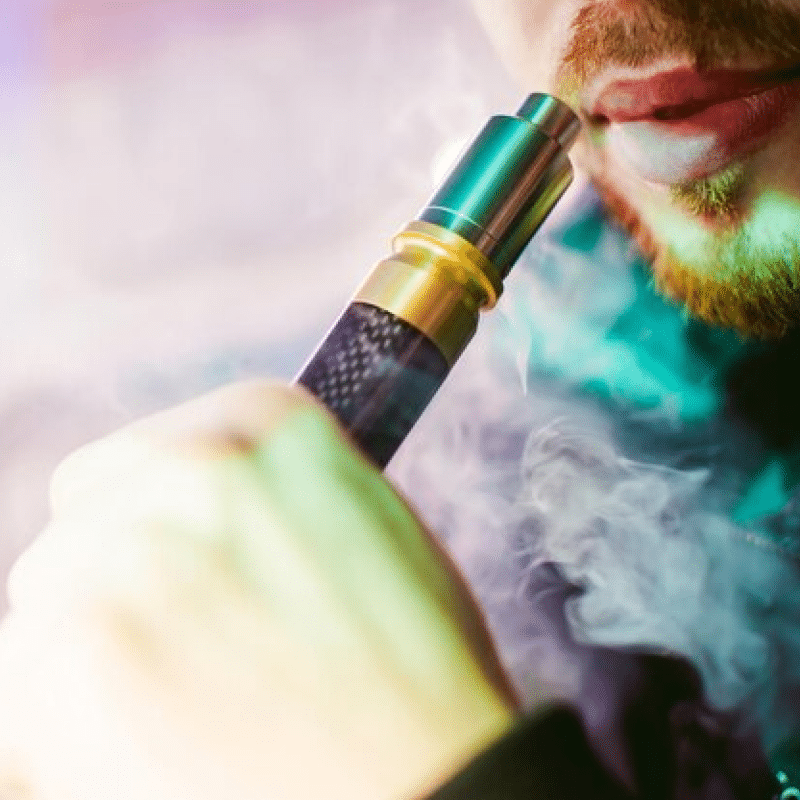You Got Served: Cannabis Product Liability Trends in Edibles, Vapes, and Pre-Rolls
Product liability is surging across the cannabis industry, with recent lawsuits involving mislabeled potency in edibles, banned additives in vapes, and misrepresentation in marketing. Forward-thinking operators can no longer afford to treat security as an afterthought. We break down the crucial shift needed now: from implementing defensive labeling SOPs and auditable batch-tracking technology to securing your business with a specialized cannabis product liability insurance tower. Learn how to mitigate these operational and legal exposures before they become an existential crisis.

What does your cannabis product liability look like? The past few years have seen an increase in marijuana product recalls and cannabis lawsuits across the country. Forward-thinking operators know that now is the time to take product liability seriously; mitigating your risk through strict internal policies and building a robust tower of insurance protection. Here’s how you can take action.
Case Studies: The New Frontiers of Product Liability Litigation in the Cannabis Industry
Product liability is nothing new for consumer packaged goods. But cannabis products incur different, and arguably more, liability risk than other consumables. Let’s explore a few recent incidents in the cannabis industry that exemplify the three primary vectors of product liability risk: potency, additives, and marketing.
Vapes: Contaminant and Additive Recalls in Michigan
Over 5,700 vapes were recalled in Michigan in August 2025. The recall was initiated by the Cannabis Regulatory Agency (CRA) after learning that the vapes may have contained banned thinning agents, like Medium-Chain Triglyceride (MCT) oil, to make the vapes easier to inhale. Despite the fact that thinning agents like MCT are legal, food-grade products, they are not allowed in inhalable cannabis products due to the health risks associated with breathing these chemicals in—quite the product liability peculiarity.
This recall highlights the importance of understanding manufacturing practices and consumption practices for cannabis businesses and the strict liability rules that go along with producing consumable goods. A substance that is safe and legal for oral consumption may not be safe when vaporized or inhaled.
Edibles: Mislabeled Potency and Regulatory Avoidance in Illinois
Wellness Group Pharms, Acreage Holdings, and their subsidiaries came under fire in January of 2025 when a class-action lawsuit was filed in Illinois. The suit alleged that the companies purposefully mislabeled cannabis products in order to circumvent state limits on THC, labeling products like vape oils as “concentrates” rather than “cannabis-infused products”.
The case is not about whether vape oils are concentrates or cannabis-infused products; it’s about cannabis businesses intentionally bypassing customer protection laws in order to sell more products at a stronger dosage. In addition to being out of compliance, this practice also increases the liability risk of someone unintentionally consuming a potent dose of THC and having a bad reaction.
The takeaway of this ongoing lawsuit is the risk of double jeopardy: potential civil product liability claims from ordinary consumers experiencing adverse reactions from over-intoxication, as well as regulatory action for deceptive practices. As the companies named in the lawsuit are vertically integrated, they face higher legal costs than other cannabis businesses, like cannabis retailers.
Pre-Rolls & Hemp: Misrepresentation and Failure-to-Warn Claims in California
Cannabis brand STIIIZY was on the receiving end of a product liability lawsuit filed in mid-2024 that is currently ongoing. The lawsuit claimed that STIIIZY’s hemp products were more potent than allowed under the Controlled Substances Act, and that they deliberately targeted underage consumers while failing to provide adequate warnings about the side effects. One plaintiff even alleged that STIIIZY’s products caused him to suffer from cannabis-induced psychosis (CIP).
Cannabis brands must take heed of this lawsuit; liability for prerolls extends beyond physical contamination of the product into the effects of cannabis use. Both the marketing and the potency for products must be accurate to protect against claims of misleading labels, cognitive harm, or other adverse effects.
Operational Defenses: Mitigating Liability at the Source
Product liability begins at the point of manufacturing. As such, internal controls are a large piece of mitigating manufacturing risk.
Labeling Standard Operating Procedures (SOPs)
Compliance covers your basis, but it doesn’t go far enough to mitigate your liability. Instead, turn to defensive labeling.
It may sound intimidating, but defense labeling is simply the practice of establishing a multi-stage quality control check for labels at every stage of the manufacturing process. This includes post-product testing, pre-packing, and during the final quality assurance check. Defense labeling reviews all packaging for claims of “wellness’ or medical efficacy, two major compliance no-nos.
Defensive labeling ensures that your packaging adheres to the strictest state standards, preventing mislabeling or misclassification issues that can get your product recalled for manufacturing defects or worse—land a product liability lawsuit.
Batch-Tracking Technology and Isolation Protocols
Are you taking full advantage of the technological tools to help your business? Robust seed-to-sale tracking with a platform like Metrc ensures that you can trace every ingredient, lot, and finished product batch with precision.
Once you have end-to-end tracking in place, it’s time to assess how you address a non-conforming batch. Every cannabis manufacturing business needs a defined and auditable process to identify, isolate, hold, and destroy non-compliant inventory, whether it’s from an incorrect label, a contaminant spike, or hemp that “tests hot.”
A business’s ability to identify, isolate, and destroy non-compliant products is directly tied to how much product is affected. The faster you can identify and act, the better. This minimizes the scale of a potential recall and provides the basis for a “reasonable care” defense should it come to a courtroom.
COAs as a Shield
COAs are more than a compliance issue; accurate COAs are a manufacturer’s ultimate defense system. A reliable, honest, third-party tested COA that is linked to a batch tracking system is the best defense against claims of mislabeling, contamination claims, or false potency representation. COAs are vital for consumer trust and safety, as well as risk management against defective or dangerous product claims.
Financial and Structural Defenses: The Cannabis Insurance Tower
Surviving a mandatory recall or major lawsuit is not easy. If you fail to plan for a contingency, you plan to fail. It takes thoughtful strategy, careful financial planning, and more than a little grit to get through—but it is possible.
Structuring a Product Recall Plan
No one wants to go through a product recall, but the only thing worse than the recall itself is being caught off guard. Every cannabis manufacturing brand should have a documented plan ready for a recall. This plan must be actionable, organized, and clear in order to minimize business interruption and maximize the retrieval rate on potential financial and reputational damage.
A product recall plan should have:
- A designated recall team ready to act in 72 hours or less. If a recall happens, who is leading the charge? A recall team needs an internal leader, legal counsel, a quality assurance manager, and a communications person. Every person on the recall team should be aware of their responsibilities and able to make executing the plan a priority.
- Pre-drafted communications for consumer notification, public statements, and regulatory communications. In the middle of a crisis is not the time to wonder what to say—these templates need to be approved by a legal team in advance.
- A logistical plan for reverse distribution of the affected products, a secure method of destruction, and a plan for consumer reimbursement.
The Crucial Role of General Liability Insurance
Liability insurance must be in place in advance of a recall happening to provide protection. This includes both general liability and dedicated cannabis product liability insurance policies These policies must be tailored to the unique needs of the cannabis industry, which includes higher-than-usual liability limits to provide a financial safety net against class-action lawsuits.
Product liability insurance policies for cannabis also need to include some items that are often named exclusions, including:
- Contamination (such as pesticides, heavy metals, or thinning agents).
- Mislabeled Potency
- Product Recall Expense Coverage
Many traditional liability policies may name these exclusions, which is why it’s vital to work with an insurance carrier that understands the cannabis industry.
Non-Negotiable Risk Strategy for Cannabis Companies
In this era of the cannabis industry, gone are the days when small details could be glossed over. Industry regulators and consumers are more wary than ever of bad actors, predatory marketing tactics, harmful additives—and rightfully so. Cannabis businesses that want to be successful long-term will treat product liability mitigation as a core pillar of brand integrity and financial survival—not an expense to be reduced at all costs.
Don’t wait until a mistake or error is nipping at your ankles with a legal complaint or subpoena. The action you take today can solidify your foundation for tomorrow. Audit your scope of processes for labeling, stress-test your batch tracking system to find errors, and take a keen look at your insurance tower. If you spot exposures or places where risk could be better covered, today is the best day to act.
Protecting your cannabis company can seem confusing; however, we’re a full-service insurance brokerage working with carriers worldwide to offer you the best coverage possible. We’re here to help! Please reach out to us today by email info@alpharoot.com or calling 646-854-1093 for a customized letter or learning more about your cannabis insurance options.




